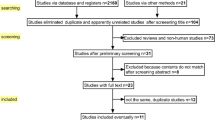Abstract
Background
Cognitive dysfunction is associated with reduced postoperative weight loss up to 2 years following surgery, though the role of cognition at more extended follow-up is not yet understood. Thirty-six months following bariatric surgery, we retrospectively compared obese and non-obese patients on 12-week postoperative cognitive performance. We hypothesized that early postoperative cognitive dysfunction would predict higher body mass index (BMI) and lower percent weight loss (%WL) in the total sample at 36 month follow-up.
Materials and Methods
Fifty-five individuals undergoing bariatric surgery completed cognitive testing at preoperative baseline and serial postoperative timepoints, including 12 weeks and 36 months. Cognitive test scores were normed for demographic variables. Percent weight loss (%WL) and body mass index (BMI) were calculated at 36-month follow-up.
Results
Adjusting for gender, baseline cognitive function, and 12-week %WL, 12-week global cognitive test performance predicted 36 month postoperative %WL and BMI. Partial correlations revealed recognition memory, working memory, and generativity were most strongly related to weight loss.
Conclusion
Cognitive function shortly after bariatric surgery is closely linked to extended postoperative weight loss at 36 months. Further work is necessary to clarify mechanisms underlying the relationship between weight loss, durability, and cognitive function, including contribution of adherence, as this may ultimately help identify individuals in need of tailored interventions to optimize postoperative weight loss.
Similar content being viewed by others
References
Sjöström L, Lindroos AK, Peltonen M, et al. Lifestyle, diabetes, and cardiovascular risk factors 10 years after bariatric surgery. N Engl J Med. 2004;351:2683–93.
Karlsson J, Taft C, Ryden A, et al. Ten year trends in health-related quality of life after surgical and conventional treatment for severe obesity: the SOS intervention study. Int J Obes (Lond). 2007;31:1248–61.
Adams TD, Davidson LE, Litwin SE, et al. Health benefits of gastric bypass surgery after 6 years. JAMA. 2012;308(11):1122–31.
Gunstad J, Strain G, Devlin M, et al. Improved memory function 12 weeks after bariatric surgery. Surg Obes Relat Dis. 2011;7:465–72.
Spitznagel MB, Garcia S, Miller LA, et al. Cognitive function predicts weight loss after bariatric surgery. Surg Obes Relat Dis. 2013;9:453–9.
Spitznagel MB, Alosco M, Strain G, et al. Cognitive function predicts 24-month weight loss success following bariatric surgery. Surg Obes Relat Dis. 2013. doi:10.1016/j.soard.2013.04.011.
Magro DO, Geloneze B, Delfini R, et al. Long-term weight regain after gastric bypass: a 5-year prospective study. Obes Surg. 2008;18:648–51.
Gunstad J, Paul RH, Cohen R, et al. Obesity is associated with memory deficits in young and middle-aged adults. Eat Weight Disord. 2006;11:e15–9.
Gunstad J, Paul RH, Cohen RA, et al. Elevated body mass index is associated with executive dysfunction in otherwise healthy adults. Compr Psychiatry. 2007;48:57–61.
El Chaar M, McDeavitt K, Richardson S, et al. Does patient compliance with preoperative bariatric office visits affect postoperative excess weight loss? Surg Obes Relat Dis. 2011;7:743–8.
Júnior WS, do Amaral JL, Nonino-Borges CB. Factors related to weight loss up to 4 years after bariatric surgery. Obes Surg. 2011;21:1724–30.
Silver HJ, Torquati A, Jensen GL, et al. Weight, dietary and physical activity behaviors two years after gastric bypass. Obes Surg. 2006;16:859–64.
Bond DS, Phelan S, Leahey T, et al. Weight-loss maintenance in successful weight losers: surgery vs. non-surgical methods. Int J Obes. 2009;33:173–80.
Spitznagel MB, Galioto R, Limbach K, Gunstad J, Heinberg L. Cognitive function is linked to adherence to bariatric postoperative guidelines. Surg Obes Relat Dis 2013 Apr 19. Pii: S1550-7289(13)00115-9.
Acknowledgments
Data collection supported by DK075119. Manuscript supported in part by HL089311. The authors acknowledge the use of LABS data as the sole contribution of the LABS consortium.
Conflict of Interest
The authors declare that there are no conflicts of interest.
Author information
Authors and Affiliations
Corresponding author
Rights and permissions
About this article
Cite this article
Spitznagel, M.B., Alosco, M., Galioto, R. et al. The Role of Cognitive Function in Postoperative Weight Loss Outcomes: 36-Month Follow-Up. OBES SURG 24, 1078–1084 (2014). https://doi.org/10.1007/s11695-014-1205-2
Published:
Issue Date:
DOI: https://doi.org/10.1007/s11695-014-1205-2




